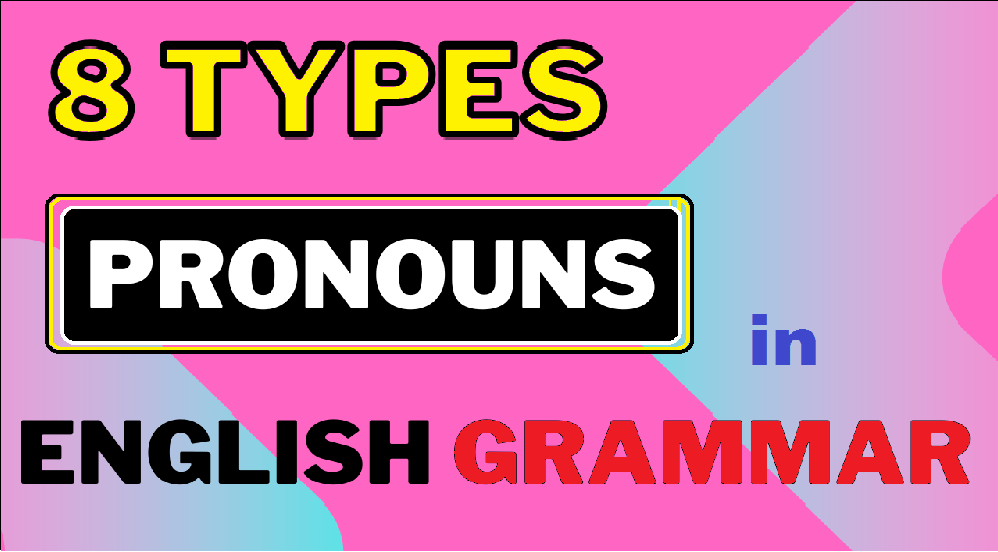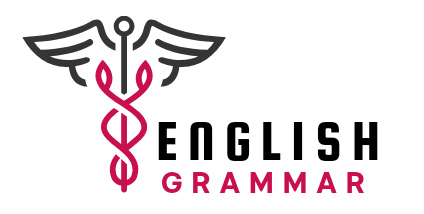The 8 Types of Pronouns in English Grammar With Examples . Personal, Reflexive, Possessive, Relative, Distributive, Demonstrative, Indefinite, Interrogative pronouns.

In this article, you will learn the definition of a pronoun and types with examples to enhance your understanding.
Definition of a Pronoun:
A pronoun is a word that is used instead of a noun. As (I, my, me, we, our, us, you, your, he, his, him, she, her, it, they, their, them), etc.
What is a Pronoun?
Pronouns are used to replace nouns in sentences. They prevent us from repeating the same noun over and over, making our speech and writing less repetitious. They are important for short and precise communication. They not only simplify the language but also improve its attractiveness.
For Example:
Instead of saying, “Sidra likes Sidra’s book,” we use a pronoun and say, “Sidra likes her book.”
- I love you so much.
- He is very intelligent.
- Ali is absent because he is ill.
- How are you?
- They are going to market.
In these sentences (I, you, he, they) are pronouns.
Types of Pronouns in English Grammar with Examples
There are eight types of pronouns in English grammar:
1. Personal Pronouns:
A personal pronoun refers to a person’s name. They allow us to express ourselves, address others, and refer to persons or things without having to repeat names or nouns. They help to make sentences shorter, clearer, and less repetitious.
For Example:
instead of stating “Ali likes Ali’s coffee,” we use the personal pronoun (“his”). Ali likes his coffee.
They also vary depending on number (singular or plural), person (first, second, or third), and gender.
They change based on several factors;
- Person: Who is being spoken about (first, second, or third person)?
- Number: Whether the pronoun is singular or plural
- Gender: Refers to male, female, or neutral entities (in some languages).
- Case: How the pronoun is used in a sentence (subject, object, or possessive)
Kinds of Personal Pronouns
They show respect for their identity and preferences. Addressing someone as (he/him, she/her, or they/them) reflects acknowledgement of their gender identity.
Subject Pronouns
These types of personal pronouns serve as the subject of a sentence, carrying out the action.
Singular: (I, you, he, she, it)
Plural: (we, you, they)
Examples:
Here are some examples of personal pronouns as subject used;
- She is going to the market.
- We will attend the meeting.
- I love reading books.
- They are coming to the party.
Object Pronouns
These personal pronouns types receive the action in a sentence.
Singular: (me, you, him, her, it)
Plural: (us, you, them)
Examples:
Here are some personal pronoun examples in sentences as object given:
- The teacher gave me a book.
- We saw them at the concert.
- She called me yesterday.
- The teacher spoke to them after class.
2. Possessive Pronouns:
Possessive pronouns are words that express ownership or belonging. Instead of repeating words, they help to simplify the words you use. Possessive words are important in everyday interactions and writing because they help keep sentences short and reduce repetition.
List of Possessive Pronouns
The possessive pronoun list in English grammar is as follows;
Singular: (mine, your, his, hers, its)
Plural: (ours, yours, theirs)
Each of these words stands alone and doesn’t need an apostrophe or additional words to clarify ownership. They make your writing and speaking clearer and less repetitive.
Instead of saying, This is John’s car. That car is John’s; you can simply say, This is John’s car. That one is his.
Examples of Possessive Pronouns
Here are some possessive pronoun examples in sentences shown;
- This book is mine, not yours.
- The red car parked outside is hers.
- Is this pen yours?
- This house is ours, and we love it!
- This seat is not mine;
- I believe it’s hers.
- The jacket on the chair is his.
- That dog is not theirs, but ours.
- Is this beautiful garden yours?
- Those keys are mine, not yours.
- The responsibility for cleaning the room is ours.
- That umbrella is not his; it’s mine.
- This room is not yours; it’s mine.
- The idea for the new design is theirs.
- The final decision to proceed was his.
These make it easy to show ownership without repeating nouns. This list highlights how they fit naturally into everyday conversations.
3. Reflexive Pronouns:
Reflexive pronouns are applied in sentences where the subject and object are the same person or thing. They refer to the sentence’s subject. They underline that the verb’s action acts on the subject.
List of Reflexive Pronouns
These reflexive pronouns in English grammar refer to the same person or thing.
Singular: (myself, yourself, himself, herself, itself)
Plural: (ourselves, yourselves, themselves)
In this case, “herself” indicates that the subject (she) is also the object of the action.
Here, “myself” emphasizes that no one else helped with the task.
Examples of Reflexive Pronouns
They are essential for clear communication, especially when you want to emphasize who is performing or receiving an action. Here are some reflexive pronoun examples in sentences given;
- She prepared the meal herself.
- We should take care of ourselves.
- I taught myself to play the guitar.
- The cat cleaned itself.
- Sidra looked at herself in the mirror before going.
- He blamed himself for the mistake.
- We prepared ourselves for the big exam.
- They enjoyed themselves at the party last night.
- He reminded himself to stay calm during the interview.
- You should treat yourself to something special today.
- I bought myself a new book to read.
- I gave myself a break after that day.
- She promised herself to be more patient.
- They saw themselves in the photos and laughed.
Each example highlights to emphasize actions directed back to the subject.
